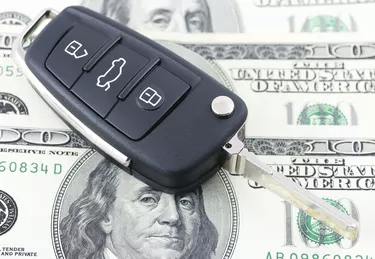
A car with high mileage is always worth less than a comparable vehicle with lower mileage. More miles typically means more wear-and-tear and more maintenance and repair costs. If you're looking to refinance the loan on a high-mileage vehicle, carefully weigh the pros and cons of taking on a new loan for an old car.
Know Your Car’s Value
Video of the Day
Visit the Kelley Blue Book website to find the dollar value of your car. This site lets you input information related to model, make, mileage and condition and gives you an average price range for what your vehicle is worth. Compare that figure to what you owe on your current loan and research how much money you anticipate saving with a refinance. With a high-mileage car, saving money usually means securing a much lower interest rate.
Video of the Day
Shop Rates
Contact your current lien holder as well as your personal bank or credit union and ask for refinance estimates. The lender will take into consideration not only your car's mileage and value, but also your creditworthiness. If you're upside-down on your loan or have a low credit score, you might be better off sticking with your current loan, selling the vehicle or trading it in instead of refinancing it.